Ancient Egyptian civilization left an indelible mark on history with its monumental achievements and advanced technology. With many of life’s necessities provided by the Nile, the ancient Egyptians had ample time to be innovative and think about how to really create an advanced and complex civilization. Art, politics, government, religion, and philosophy were the foundational blocks needed to establish such a sophisticated and grand civilization.
Their first great achievement and what would essentially be the foundation of their advanced civilization was developing advanced agricultural and irrigation systems to salvage the full power of the Nile. They relied on the Nile to irrigate their crops and keep their lands fertile. They constructed canals from the Nile to trap the flood water in the levees around the fields. This form of irrigation is called basin irrigation and was critical to helping farmers maintain a consistent food supply.
The emergence of the pharaohs—who ruled Egypt for a whopping 3000 years—brought with it skilled military leaders, talented traders, and administrators of massive building projects, the most magnificent of them, the Great Pyramids of Giza.
They constructed all their structures out of stone. These huge construction products required a high level of engineering and architectural skill as well as the management of a massive workforce made of highly-skilled laborers and craftsmen.
The monuments, temples, and tombs of the ancient Egyptians continue to astound and dumbfound people even into the modern age. The massive size and complexity of architectural marvels like the Pyramids, Abu Simbel, and the Karnak Temple testify to the incredible command of technology possessed by the Egyptians.
Apart from the immense temples and monuments, the ancient Egyptians were amazing innovators—inventing a plethora of items that we still use today in our daily lives. These include a variety of household goods like the toothbrush, and toothpaste, mirrors, and even cosmetics.
The ancient Egyptians were constantly expanding their knowledge base and made impressive advances in all fields. They have made advancements in engineering, astronomy, art, medicine, construction, and literature. As ancient Egyptian civilization progressed, so did their skills and knowledge. It is safe to say that the ancient Egyptians have established one of the most extraordinary and impressive civilizations of the ancient world.
Medical surgery and the subsequent surgical instruments needed were also invented by the ancient Egyptians. The Edwin Smith Papyrus—the oldest surgical treatise on trauma—describes in detail an accurate account of 48 surgical cases. It also lists a wide array of instruments used for surgery. This includes bandages, scalpels, surgical stitches, probes, and scissors. Another important document is the Ebers Papyrus, which is a 110-page text treating illnesses such as depression, cancer, heart disease, and much more. These texts are a testament to how advanced medical practice was in Ancient Egypt. The Egyptian doctors were the most elite members of society below the pharaohs and noblemen.
The Egyptians were masterful astrologists. They used to keep track of time by following the cycles of the moon. However, the seasons would not line up with the schedule of the lunar calendar. So they invented a solar calendar with approximately 365 days a year. The ancient Egyptian solar calendar is the first calendar known to use a year of 365 days. Nowadays we use the Gregorian calendar around which is also sun-based.
Furthermore, the Egyptians wanted to be as precise as possible with keeping track of time, so they invented not one but two types of clocks. They used obelisks as a type of sun clock. They kept track of how the shadow moved around on its surface through the day. This allowed them to be able to identify the longest and shortest days of the year, critical for farming.
The other type of clock is a water clock made of stone with a small hole at the bottom. This allowed the water to drip at a consistent rate. Measuring the passing of time was measured by marks at different levels.
3000 BC was an important time for the development of Egyptian scientific discovery and technology. Around this time, the Egyptians discovered how to make bronze, which would be the basis of a colorful array of innovations. They discovered that by mixing a tiny amount of tin with copper, they could create bronze, a much more sturdy and resilient metal that could be used for making durable tools and machinery. It also melted at a lower temperature making it easier to mold and cast.
Not only did the Egyptians invent paper (papyrus), they also developed their own complex system of writing called hieroglyphics. They were amongst the first civilizations to develop a language into a codified form of writing. Hieroglyphics first took on the form of pictograms. The first pictogram dates as far back as 6000 BCE. These images were used to depict cultural phenomena, wars, agricultural and hunting techniques, and historical events. Although the average Egyptian did not know how to write, Scribes existed to record important information, preserve their history, and pass it down over thousands of years.
They would write on papyrus in red or black ink. The black ink was made by mixing vegetable gum, beeswax, and soot. Papyrus sheets were easy to store and durable. All other civilizations at the time were using clay tablets, wood, or wax. The Egyptians created the most important writing material in the ancient world. It was exported all throughout the Mediterranean. It continued to be used in Europe until as late as the 7th century.
Did you know the word “paper” comes from the word papyrus? That is how much of an impact the ancient Egyptians have on our modern world.
Ancient Egyptian civilization prevailed for thousands of years and many of its discoveries, inventions, structures, and practices have stood the test of time. The achievements of the ancient Egyptians are vast and profound. From agricultural systems to cosmetic makeup to mummification to engineering, the ancient Egyptians have made remarkable advances in shaping both the ancient and civilized world.


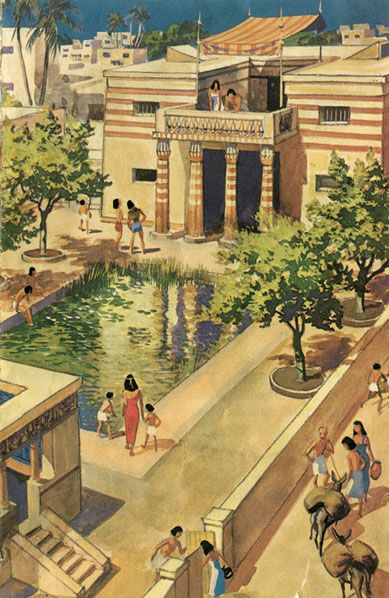
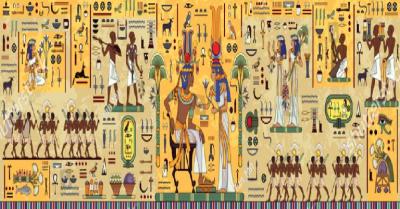
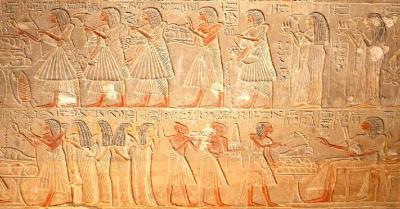
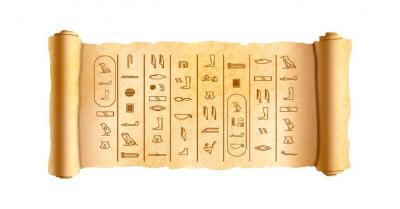


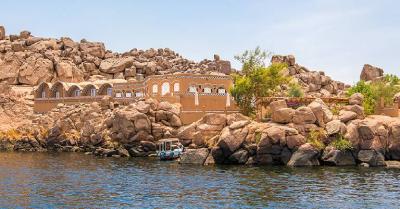
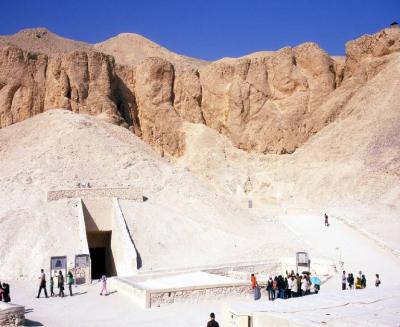
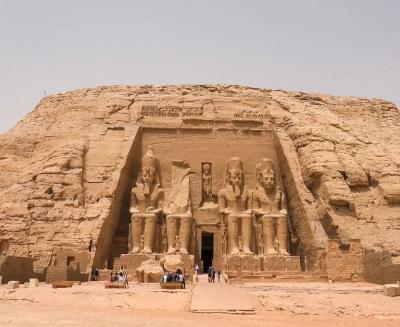
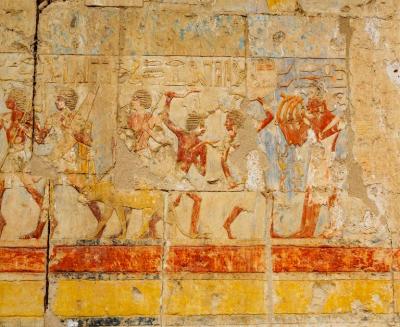
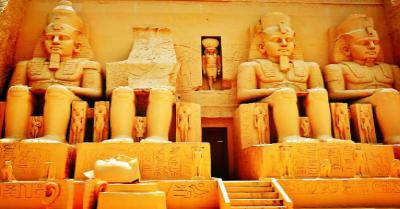
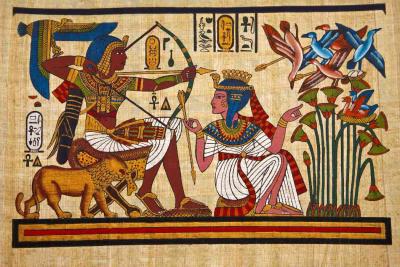
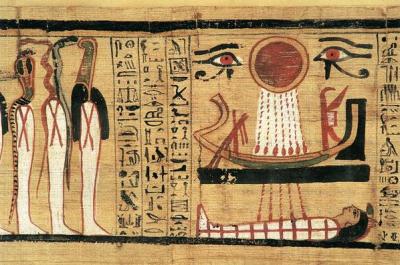
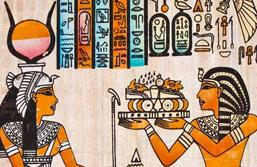
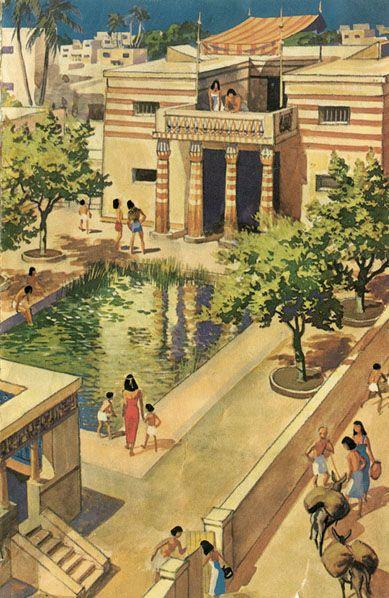





Comments